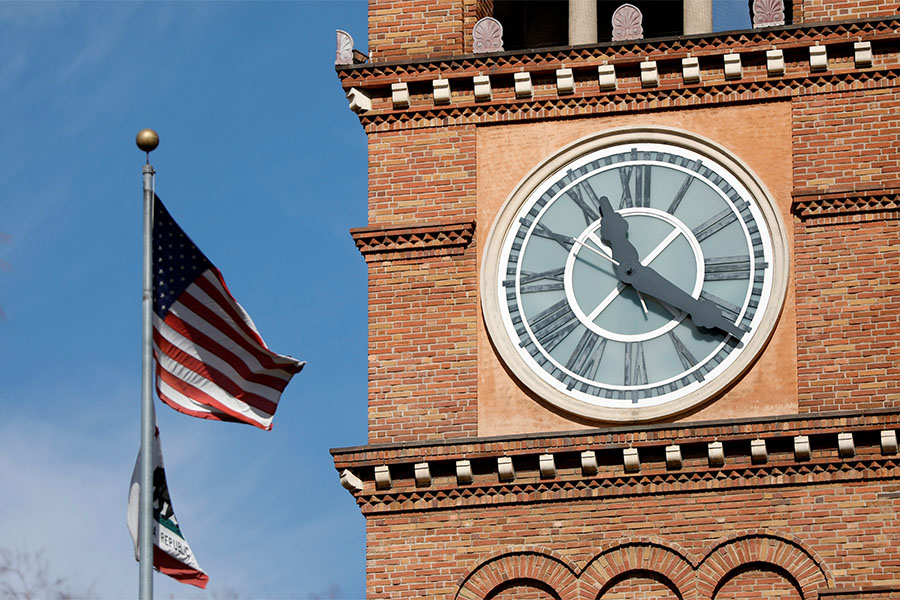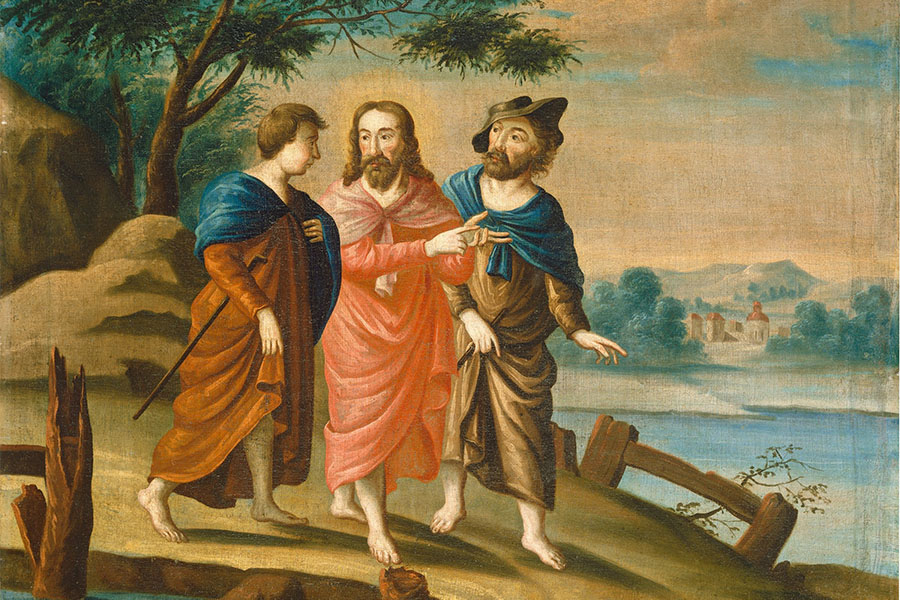“Put your sword back into its sheath,” Jesus rebuked a disciple in the Garden of Gethsemane. “Do you think that I cannot call upon my Father and he will not provide me … with … legions of angels?” (Mt 26:52-53) But the kingdom that Christ came to establish would not be initiated by force. Rather, in a central paradox of Christianity, the kingdom would be inaugurated by suffering and even death.
Christ eschewed the power of violent force, not simply because of its effect on the victim, but rather because of the corrosive effect of violence on the soul of the one who perpetuates it. This might be the framework for a program of Lenten reading and reflection, especially in a political culture so riven by violence and threats of violence.
Simon Weil’s classic 1939 essay “The ‘Illiad’ or the Poem of Force” shows us how the human spirit is deformed by the force that it presumes to wield over others. First published in an English translation by Mary McCarthy in 1945, Weil’s essay explains how the “Illiad” demonstrates that the exercise of violent force exacts emotional and psychological violence on the perpetrator as much as the victim. No one really controls violent force, she explains. Rather, one is controlled by the force one presumes to brandish. As such, the violent will always be defeated by the violence they flaunt. Weil’s analysis of the “Iliad” is confirmation of the way of the desert, in which suffering — not violence — is the path of both the redeemer and the redeemed. “Only he who has measured the dominion of force, and knows how not to respect it,” writes Weil, “is capable of love and justice.” Put away your sword, indeed.
Evelyn Waugh’s novel “Helena” is in part an exercise in contrasting the soul-crushing result of wielding violence with the spirit-enriching effects of selfless service. Using considerable literary license, Waugh tells the story of St. Helen, mother of the fourth-century Roman emperor Constantine, and discoverer of the true cross of Christ. Waugh accounts for St. Helen’s triumphant expedition for the cross as the culmination of a life of quiet, painful suffering. Abandoned by her husband, Constantius Chlorus, and forced to witness her son Constantine’s descent into murderous madness, St. Helen’s triumph came only at the end of a life of sorrow and anguish. Waugh’s narrative of St. Helen’s patient suffering and quiet triumph is a sustaining guide through Lent.
The way of suffering in the face of violence is also illustrated in Shusaku Endo’s unforgettable novel “Silence,” a fictionalized account of the persecution of Portuguese Jesuit missionaries and their Christian converts in 16th-century Japan. The success of Endo’s novel is not found in triumph and happy resolution, but rather in spiritual struggle and moral ambiguity. “Silence” is a reminder that we may be called to suffer for our witness to the Gospel but that few of us ever have been. The life of Christian discipleship, while ordered toward a blessed resolution, is not devoid of sorrow. The road to joy may be the path of suffering. Endo’s “Silence” is a brilliant account of that paradox, and perfect Lenten reading.
Finally, perhaps no account of suffering is more acute than Oscar Wilde’s “De Profundis,” his classic letter from prison. While we focus on suffering during Lent, Wilde reminds us that suffering does not respect the season or the calendar. “Suffering is one very long moment,” he writes. “We cannot divide it by seasons. We can only record its moods, and chronicle their return. With us time itself does not progress. It revolves.” But “nothing in the world is meaningless,” Wilde continues, “and suffering least of all.” Rather, suffering reveals “something hidden away in my nature, like a treasure in a field.” In Wilde’s case that hidden treasure was “Humility.” But “De Profundis” shows us that suffering can reveal our own particular faults and sins — and maybe even purge them in the desert of Lent.
Read More Commentary
Copyright © 2023 OSV News







